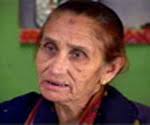
Shahjehan Aapa
1946-2013
Shahjehan Aapa grew up near Delhi in extreme poverty. In the late 1970s, her young daughter was burned alive because of dowry harassment, a tragedy that moved her to social activism. She helped found Shakti Shalini in 1987, an NGO that addresses gender-based violence by working both with individuals and with the broader community. The GFP staff note with sadness Shahjehan's death in September of 2013 after an accident on her way to Mahela Panchayat.
Keywords: feminist conferences, gender-based violence, community activism
Media: Transcript (English), Video, Bibliography, YouTube Video, Name Pronunciation Audio
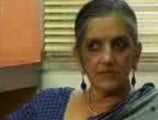
Flavia Agnes
Flavia Agnes, born in 1947, is a women's rights lawyer and writer, having written extensively on issues of domestic violence, feminist jurisprudence and minority rights. At last contact she was co-ordinating the legal centre of MAJLIS and engaged in her doctoral research on Property Rights of Married Women with the National Law School of India. A GFP staff member was recently able to conduct a second interview with Flavia. Keywords and links for the latest interview are found to the right of the semi-colon in the lists below.
Keywords: feminist conferences, politics and the law, intersectionality
Media: [2003 Interview]: (English), Video, Bibliography, YouTube Video; [2017 Interview]: (English), YouTube Video, Name Pronunciation Audio
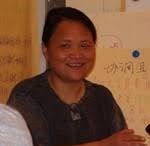
Ai Xiaoming
Ai Xiaoming, born in 1953, is a feminist literary scholar and the co-producer and director of the Chinese version of The Vagina Monologues, one of the activities of the Stop Domestic Violence network. She is Deputy Director of the Women's Studies Center and director of the Sex/Gender Education Forum in Zhongshan University, Guangzhou.
A chapter in Gender Dynamics, Feminist Activism and Social Transformation in China published by Ke Qianting in 2019 discussing the Vagina Monologues in China can be found here.
Keywords: feminist conferences, media, academia and women's studies, education, gender-based violence, politics and the law, reform of domestic/family roles
Media: Transcript (English, Mandarin), Video (English, Mandarin), Bibliography, YouTube Video (Mandarin, English Dubbed), Name Pronunciation Audio
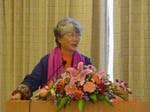
Chen Mingxia
Chen Mingxia, born in 1948, is a researcher at the Institute for Legal Research of the China Academy of Social Sciences, and was one of the leaders who initiated an anti-domestic violence project that developed into the first large scale women's NGO in China, Stop Domestic Violence. She headed this first national women's network.
Keywords: feminist conferences, education, gender-based violence, reform of domestic/family roles
Media: Transcript (English, Mandarin), Video (English, Mandarin), Bibliography, YouTube Video (Mandarin, English Dubbed), Name Pronunciation Audio
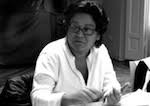
Violeta Delgado
Violeta Delgado was born in 1969, participating in the National Literacy Campaign when she was just 11 years old, kicking off a lifetime of political participation and activism. She became involved in a campaign to end domestic violence. She has done consulting, run for the National Assembly, and now works with CINCO - an organization that researches the media's role in society and politics. In 2005, Delgado was part of the group of 1000 Peacewomen that was nominated for the Nobel Peace Prize.
Keywords: feminist conferences, gender and health, education, gender-based violence, politics and the law
Media: Transcript (English, Spanish), Video (English, Spanish), Bibliography, YouTube Video (English, Spanish) Name Pronunciation Audio
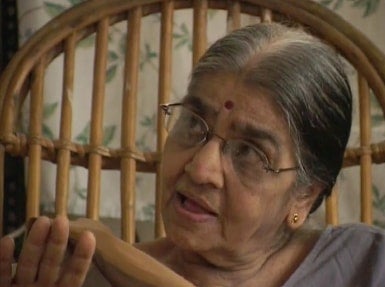
Neera Desai
1925-2009
Neera Desai, (1925-2009) was a pioneer in the field of Women's Studies and a nationally and internationally known scholar. She set up the first Research Centre for Women's Studies in SNDT Women's University. Her much-acclaimed research works have been published in Gujarathi and English. The GFP staff note with sadness the death of Neera in 2009 after her battle with cancer.
Keywords: feminist conferences, academia and women's studies
Media: Transcript (English), Video, Bibliography, YouTube Video, Name Pronunciation Audio

Josephine Effah-Chukwuma
Josephine Effah-Chukwuma, born in Lagos in 1966, is a specialist in gender and development and a human rights advocate. She received her B.A. in English, and her M.A. in development studies with a special focus on women’s issues, from the Institute of Social Studies in the Hague, the Netherlands. She worked for a few years for the Constitutional Rights Project (CRP), and then in 1999 established Project Alert on Violence Against Women, a not-for-profit that addresses gender-informed abuses The Project provides counseling, advocacy, and temporary shelter for abused persons. The organization opened the first shelter for abused/assaulted women and girls in Nigeria in 2001.
Keywords: community activism, gender-based violence, reform of domestic/family roles, environment, feminist conferences
Media: Name Pronunciation Audio, Transcript, Video, YouTube Video
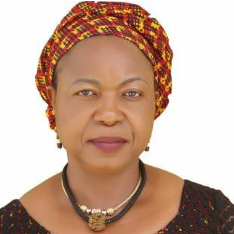
Dr. Joy Ngozi Ezeilo
Dr. Joy Ngozi Ezeilo is professor of law and the Dean of the Law School, University of Nigerian (UNN). She has been the lead professor of the "Women, Children, and the Law" class at the UNN since 1997. An activist and feminist scholar, Dr. Ezeilo was appointed the UN Special Rapporteur on trafficking in persons between 2008 and 2014, during which time she traveled to several countries to determine the causes, mechanisms, and scope of human trafficking. She is an active member of the civil society movement in Nigeria, where she founded the Women’s Aid Collective (WACOL), a not-for-profit that works to promote and protect the rights of women and girls. She is the founder and moderator of the West African Women’s Rights Coalition (WAWORC).
Keywords: politics and the law, reform of domestic/family roles, gender-based violence, academia and women's studies, environment, feminist conferences
Media: Name Pronunciation Audio, Transcript, Video, YouTube Video
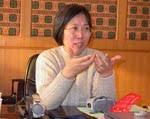
Gao Xiaoxian
Gao Xiaoxian, born in 1948, is Secretary General of the Shaanxi Research Association for Women and Family. Working as an official in the Shaanxi Provincial Women's Federation, Gao has been a pivotal figure in establishing this influential non-governmental women's organization, and has also been involved in rural development projects.
Keywords: feminist conferences, gender and health, academia and women's studies, education, rural women and land reform
Media: Transcript (English, Mandarin), Video (English, Mandarin), Bibliography, YouTube Video (Mandarin, English Dubbed), Name Pronunciation Audio
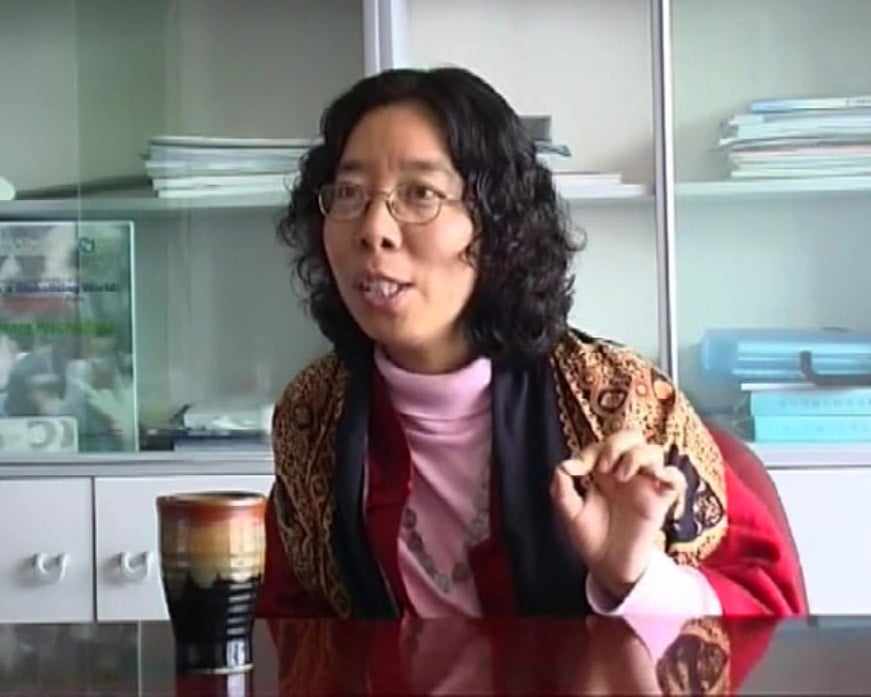
Ge Youli
Ge Youli, born in 1962, is the China Country Director for the Global Alliance for Workers and Communities in Guangzhou. She has worked at the Ford Foundation and at the United Nations Development Program in Beijing, becoming involved in many feminist projects in China.
Keywords: feminist conferences, gender-based violence, politics and the law, reform of domestic/family roles
Media: Transcript (English, Mandarin), Video (English, Mandarin), Bibliography, YouTube Video (Mandarin, English Dubbed), Name Pronunciation Audio

He Zhonghua
He Zhonghua, born in 1937, is a professor of literature from the Naxi ethnic minority. She established a women's studies center in the Academy of Social Sciences and a minority women research center in Yunnan. She has worked on many projects ranging from improving ethnic minority women's health to empowering women to participate in rural development.
Keywords: feminist conferences, environment, academia and women's studies, education, intersectionality, rural women and land reform
Media: Transcript (English, Mandarin), Video (English, Mandarin), Bibliography, YouTube Video (Mandarin, English Dubbed), Name Pronunciation Audio
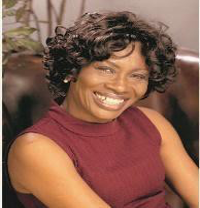
Ngozi Iwere
Ngozi Iwere, born in 1956, has pursued work in language teaching, journalism and communications, but describes herself as primarily an activist. Through her contributions to the United Nations Expert Strategy Meeting on HIV/AIDS and Gender preparatory to the UN General Assembly on HIV/AIDS, the Expert Strategy Meeting on HIV/AIDS as a security issue, and UNAIDS Consultative Meeting on Communication for Social Change, she played key roles at the national and global levels in shaping policies on HIV/AIDS. She developed a model program for HIV/AIDS Prevention that targets and involves the entire community, which earned her an Ashoka Fellowship.
Keywords: community activism, gender and health, reform of domestic/family roles, feminist conferences
Media: Name Pronunciation Audio, Transcript, Video, YouTube Video

Ke Qianting
Media: Transcript (English, Mandarin), YouTube Video (Mandarin, English Subtitles)
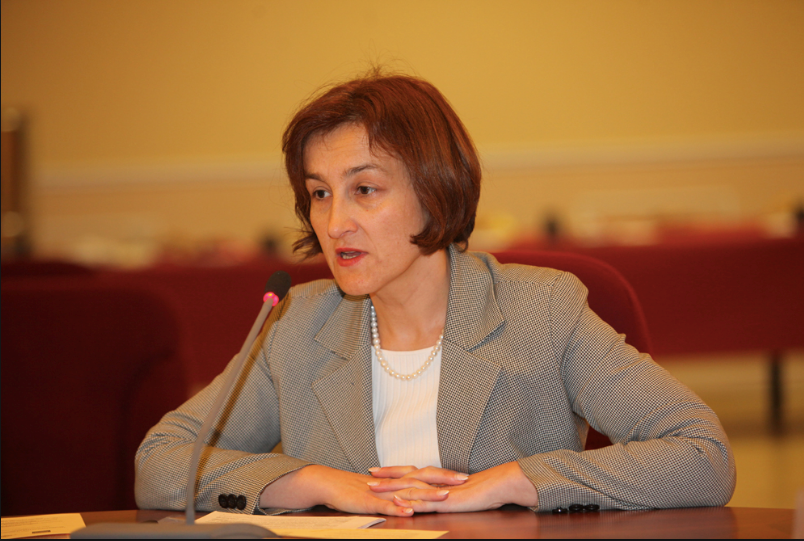
Yelena Viktorovna Kochkina
Yelena Viktorovna Kochkina, born in 1956, began working in gender research in 1990. Her work focuses on a gender analysis of legal reform in Russia, structural adjustment programs and the implementation of equal opportunity policies in Russia, as well as gender in the Russian education system. She is a research fellow and professor at the Institute of Social and Economic Studies of the Population at the Russian Academy of Sciences.
Keywords: academia and women's studies, politics and the law, intersectionality, community activism, reform of domestic/family roles, feminist conferences
Media: Transcript (English, Russian), YouTube Video (English, Russian), Name Pronunciation Audio
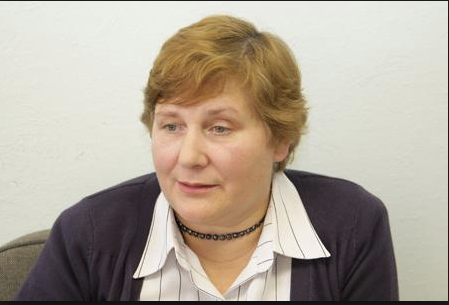
Mariia Grigor’evna Kotovskaia
Mariia Grigor'evna Kotovskaia, born in 1952, is a professor, ethnographer, and anthropologist. She began to research issues related to women and gender in the 1990s and became one of the founders of the Group for Ethno-Gender Research (at the Institute of Ethnology and Anthropology at the Russian Academy of Sciences). She is on several councils and commissions, particularly for issues such as migration and immigration, family and youth, and women in leadership.
Keywords: academia and women's studies, international rights, feminist conferences
Media: Transcript (English, Russian), Video (English, Russian), YouTube Video (English, Russian), Name Pronunciation Audio

Li Huiying
Li Huiying, born in 1957, is Professor of Sociology and assistant Director of the Women Research Center of the Central Party School, providing training for senior level Chinese Communist Party officials. She has succeeded in incorporating courses on gender studies in the official curriculum and runs feminist workshops for faculty nationwide.
Keywords: feminist conferences, academia and women's studies, education, politics and the law, reform of domestic/family roles, rural women and land reform
Media: Transcript (English, Mandarin), Video (English, Mandarin), Bibliography, YouTube Video (Mandarin, English Dubbed), Name Pronunciation Audio

Matilde Lindo
Matilde Lindo (1954-2013) was a feminist leader, teacher, sociologist and activist who focused on issues of violence and discrimination against women and racial discrimination within Nicaragua. She was a proud representative of the black population from the Rosita Mines region. She helped to start a radio program that aimed to raise awareness about violence against women as a violation of women's rights and lead the Network of Women Against Violence during the later years of her life. The GFP staff note with sadness the death of Matilde in 2013. A public obituary celebrating her life and detailing her dedication to women's rights can be found here (Spanish).
Keywords: feminist conferences, gender and health, education, intersectionality
Media: Transcript (English), Video, Bibliography, YouTube Video, Name Pronunciation Audio
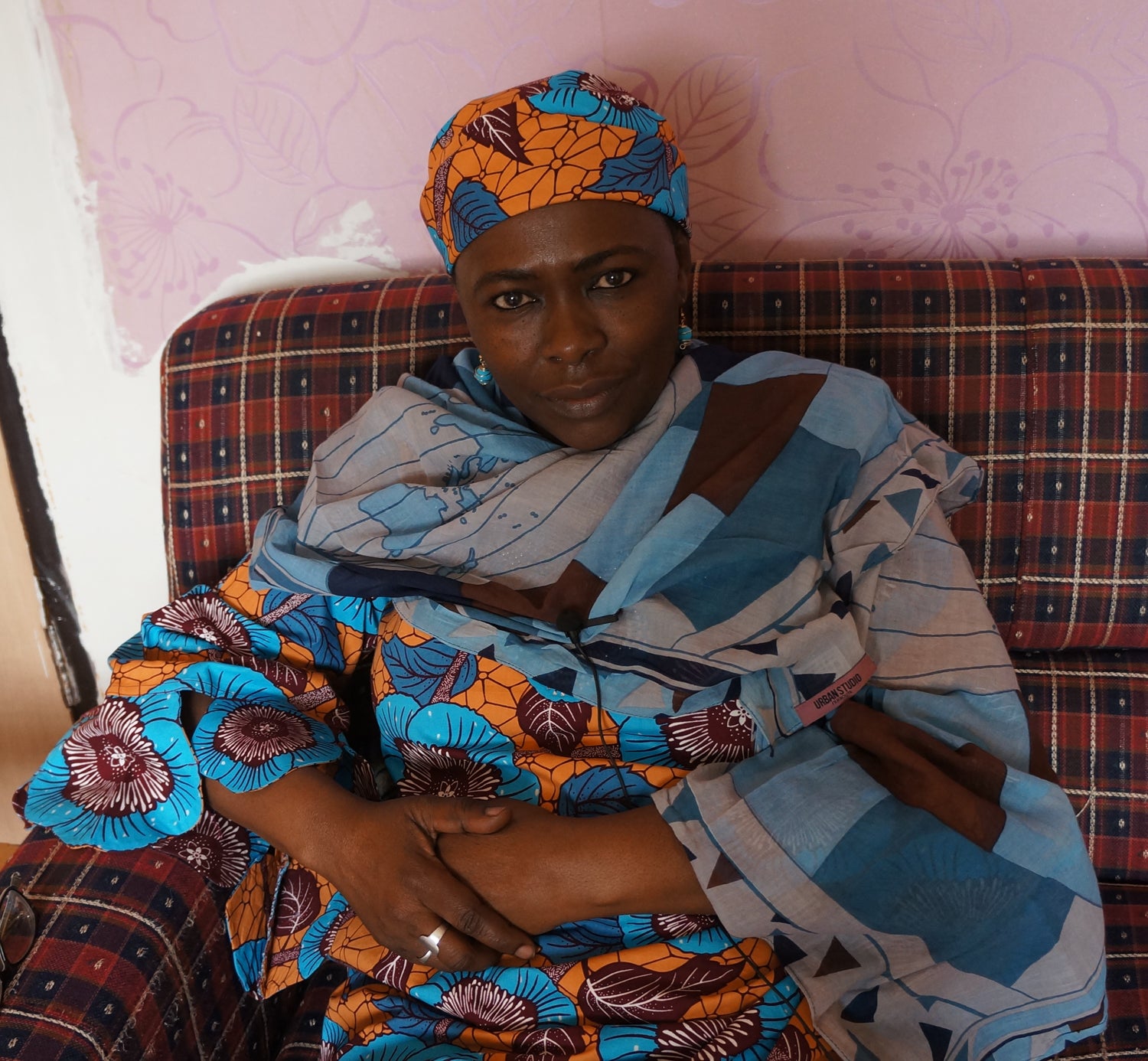
Dr. Mairo Usman Mandara
Dr. Mairo Usman Mandara was born on June 5, 1965, in Bukuru, just outside of Jos, the capital of Plateau State, Nigeria. She first attended primary school in Bukuru and continued her post-secondary education at the University of Jos. There she studied medicine, specifically women’s health issues, an interest that expanded to include the socio-economic issues associated with women’s health such as VVF (vesico-vaginal fistula), e.g., early marriage and stunting due to malnutrition. Her work as an obstetric-gynaecologist led to a broader feminist concern with girl-child education, the founding of the Federation of Muslim Women of Nigeria (FOMWAN), and with the NGO, Girl-Child Concerns. Between 2005 and 2010, Dr. Mandara was a Senior Country Adviser in Nigeria to the David and Lucile Packard Foundation and more recently worked with the Bill & Melinda Gates Foundation as the Country Representative to Nigeria. Her current activist and scholarly work reflect her belief in the importance of working with traditional political and religious leaders in encouraging parents to enable their daughters to complete their secondary school education.
Keywords: gender and health, reform of domestic/family roles, academia and women's studies, feminist conferences
Media: Name Pronunciation Audio, Transcript, Video, YouTube Video
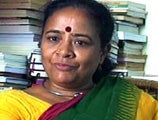
Mangai
Mangai is the pseudonym of Padma (born in 1959) who is a theatre director and Professor of English Literature in Stella Mary's College. As a member of the All India Democratic Women's Association and Chennai Kalai Kuzhu, Mangai translates social issues into street theatre and stage plays, becoming the key person in a group called Voicing Silence.
Keywords: feminist conferences, environment, art/writing as activism
Media: Transcript (English), Video, Bibliography, YouTube Video, Name Pronunciation Audio
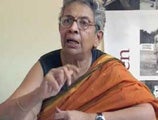
Vina Mazumdar
1927-2013
Vina Mazumdar (1927-2013) was a professor and past fellow of the Indian Institute of Advanced Studies, serving on the Committee on the Status of Women in India and later directing the Programme of Women's Studies at the Indian Council of Social Science Research. She founded the Centre for Women's Development Studies and became its Chairperson. The GFP staff note with sadness the death of Vina in 2013. To learn more about her contribution to women's movement in India, read her public obituary written in The Hindu Paper.
Keywords: feminist conferences, academia and women's studies, rural women and land reform, politics and the law
Media: Transcript (English), YouTube Video, Video, Bibliography, Name Pronunciation Audio
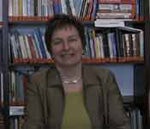
Joanna Regulska
Joanna Regulska was born in 1951 in Warsaw, Poland. She studied geography at the University of Warsaw in Poland and at the University of Colorado in the United States. In 1989, she co-founded the Foundation for Development of Local Democracy in Poland. She directs the Department for Women and Gender Research at Rutgers University in the USA Regulska has a daughter and divides her life and work between Poland and the United States.
Keywords: feminist conferences, disability rights
Media: Transcript (English, Polish), Video (English, Polish), Bibliography, English YouTube Video, Name Pronunciation Audio
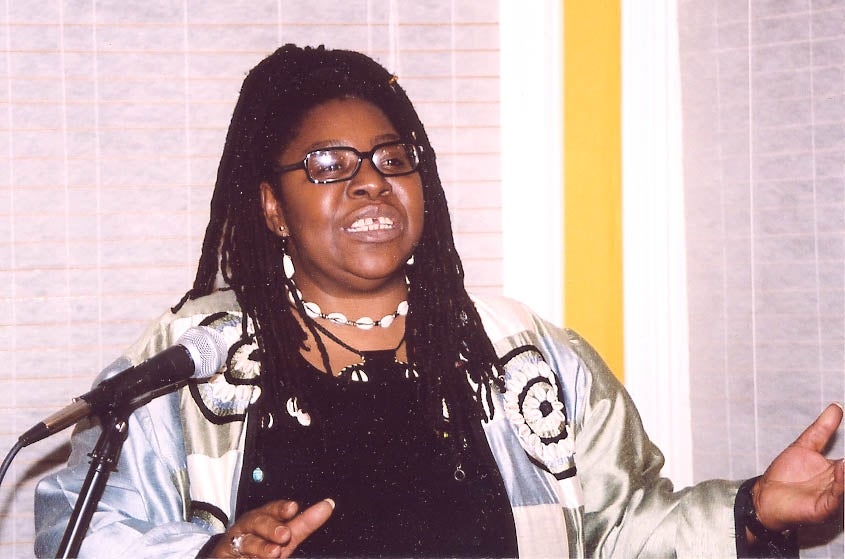
Loretta Ross
Loretta Ross, born in 1953, is an activist and was one of the first African American women to direct a rape crisis center. She has served as director of the Women of Color Programs for the National Organization for Women, as national co-director of the March for Women's Lives in DC, and as National Program Research Director for the Center for Democratic Renewal. She founded the National Center for Human Rights Education and co-authored "Undivided Rights: Women of Color Organizing for Reproductive Justice". She is a founding member and most currently a national coordinator of SisterSong Women of Color Reproductive Health Collective. The New York Times published an article about Loretta Ross on November 19th, 2020, which can be found here. Congratulations to United States GFP interviewee Loretta Ross on being named a 2022 MacArthur Fellow!
Keywords: gender and health, feminist conferences, gender-based violence, intersectionality, reproductive rights
Media: Transcript (English), Video, Bibliography, YouTube Video, Name Pronunciation Audio
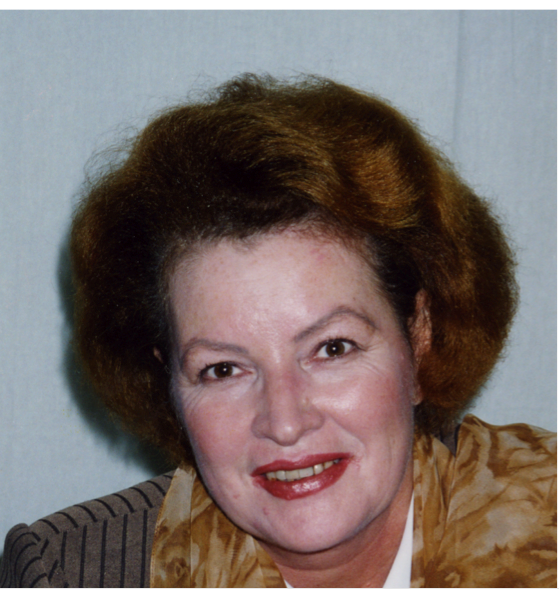
Liubov Vasil’evna Shtyleva
Liubov Vasil'evna Shtyleva, born in 1956, was a teacher of history in public schools before going back to get her doctorate in education. She then taught educational science and psychology at the Murmansk State Pedagogical Institute, worked at the Institute for Social Pedagogy at the Russian Academy of Education, and was the principal research associate at the Institute of Childhood, Family and Upbringing at the Russian Academy of Education. She has worked on issues of education and gender in Russia and internationally.
Keywords: academia and women's studies, reform of domestic/family roles, community activism, feminist conferences
Media: Transcript (English, Russian), YouTube Video (English, Russian), Video (Russian), Name Pronunciation Audio
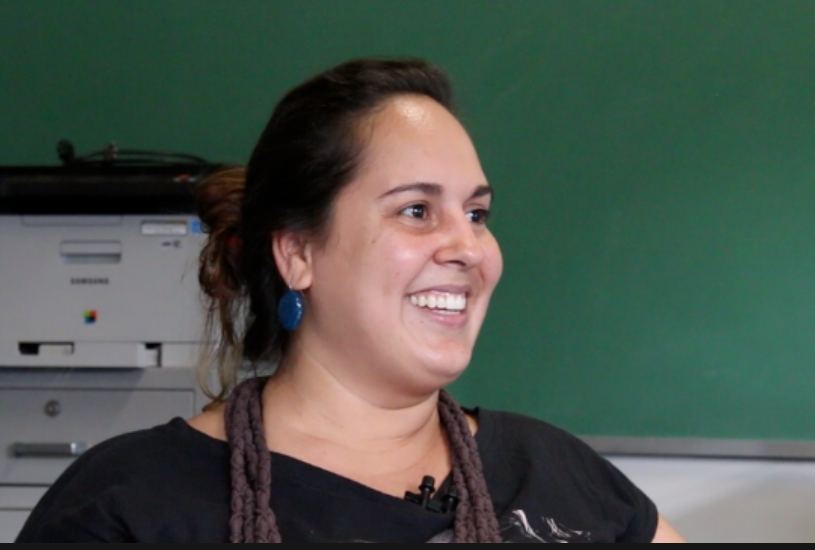
Nataraj Trinta
Nataraj Trinta, born in 1983 in Rio de Janeiro, is a graffiti artist and teaches graffiti workshops to women in low-income communities in Rio de Janeiro as a means to discuss violence against women. In 2010, with other artists and feminists, she helped to create the Feminist Urban Art Network (Rede NAMI), which promotes women’s rights and works to end violence against women through art.
Keywords: politics and the law, art/writing as activism, academia and women's studies, feminist conferences
Media: Transcript (English, Portuguese), Video, YouTube Video (Portuguese, English), Name Pronunciation Audio
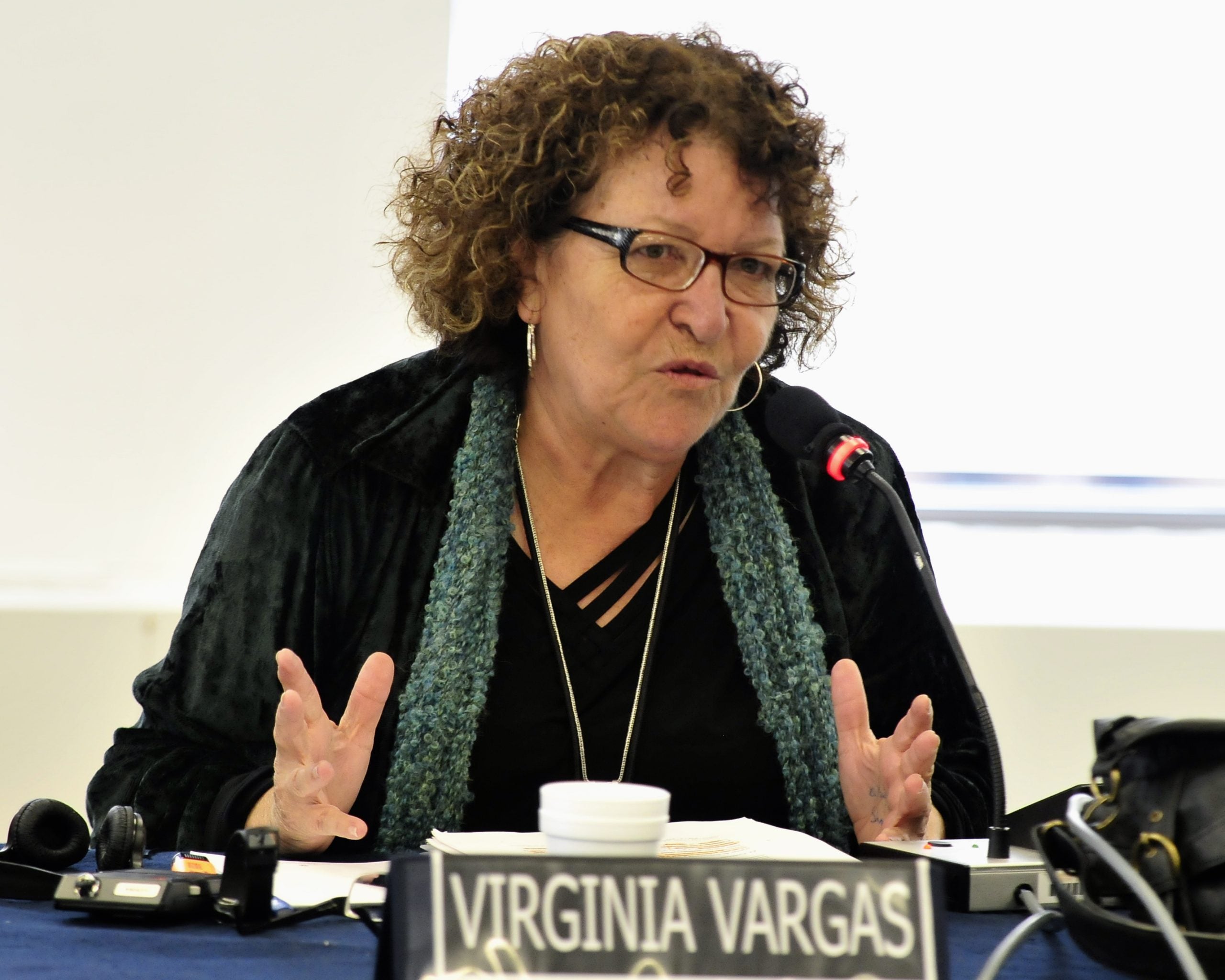
Virginia Vargas
Virginia Vargas, born in 1945, is sociologist and a leader of the women's movement in Peru. In 1978 Vargas was a founding member of the Flora Tristán Center, a non-governmental Peruvian organization that studies, educates, and lobbies for women's rights. She served as the organization's coordinator and later its director until 1990. She founded the Latin American division of DAWN (Development Alternatives with Women for a New Era). She has long been engaged in the struggle for democracy and was candidate for Congress in 1985 and one of the leading activists in coordinating the organization Women for Democracy (MUDE) in 1997. Vargas was the recipient of a UNIFEM Award during the United Nations' 4th World Conference on Women in Beijing in September 1995. In 2000 she spoke at the UN General Assembly in New York on behalf of Latin American and Caribbean women’s NGOs. Beginning in 2001, Vargas became part of the World Social Forum's International Committee. She is also on the Advisory Council of the National University of San Marcos' Institute for Democracy and Global Transformation. In 2005, at the Millennium Social Summit, she was a speaker representing Civil Society at the UN General Assembly, New York. Vargas has participated in debates and discussions in many countries being internationally recognized as an activist and academic/researcher and is the author of over 40 publications on citizenship, the state, and democracy from a feminist perspective.
Keywords: academia and women's studies, feminist conferences, intersectionality
Media: Transcript (Spanish, English), Video, YouTube Video (Spanish, English Subtitles), Name Pronunciation Audio
Interviewee Photo Credit
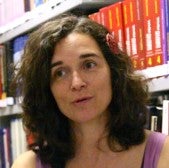
Shirley Villela
Shirley Villela, born in Rio de Janeiro in 1964, began her professional work in gender issues while living for three years in the USA, volunteering at the International Gender and Trade Network. Since 2012, she has been the Coordinator of the Maré de Sabores project, a vocational training project for women in Rio.
Keywords: feminist conferences, community activism, education
Media: Transcript (English, Portuguese), Video, YouTube Video (Portuguese, English Subtitles), Name Pronunciation Audio
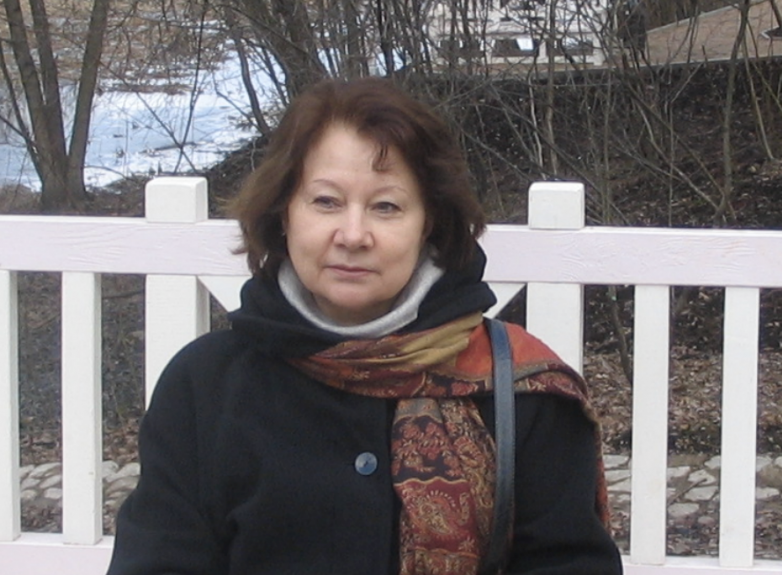
Olga Aleksandrovna Voronina
Olga Aleksandrovna Voronina, born in 1957, is a writer and philosophy professor at the Institute of Philosophy of the Russian Academy of Sciences. She was one of the first researchers who began to study feminist theory and women’s movements, and from 1987 to 1990 she was a member of an early feminist grassroots group, Lotus. In 1990, with other colleagues, Voronina helped to found the Moscow Center for Gender Studies (MCGS), where she was director from 1994 to 2015.
Keywords: academia and women's studies, reform of domestic/family roles, feminist conferences
Media: Transcript (English, Russian), Video (Russian, English Dubbed), Name Pronunciation Audio
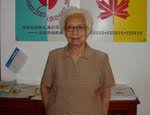
Wang Xingjuan
Wang Xingjuan, born in 1931, was an editor at the Beijing Publishing House and started the first women's domestic violence hot line in China. This became the Maple Women's Counseling Center, one of the earliest women's NGOs in China. At the last contact, she was serving as the director.
Keywords: feminist conferences, gender and health, gender-based violence, politics and the law
Media: Transcript (English, Mandarin), Video (English, Mandarin), Bibliography, YouTube Video (Mandarin, English Dubbed), Name Pronunciation Audio
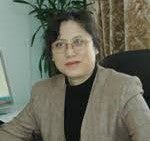
Zhang Li Xi
Zhang Li Xi, born in 1953, is President of the China Women's University, affiliated with the All-China Women's Federation. Under her leadership, the CWU created the first Women's Studies Department in China, and the first Women's Studies major.
Keywords: feminist conferences, academia and women's studies, gender-based violence, intersectionality, politics and the law, rural women and land reform
Media: Transcript (English, Mandarin),Video (English, Mandarin), Bibliography, YouTube Video (Mandarin, English Dubbed), Name Pronunciation Audio



